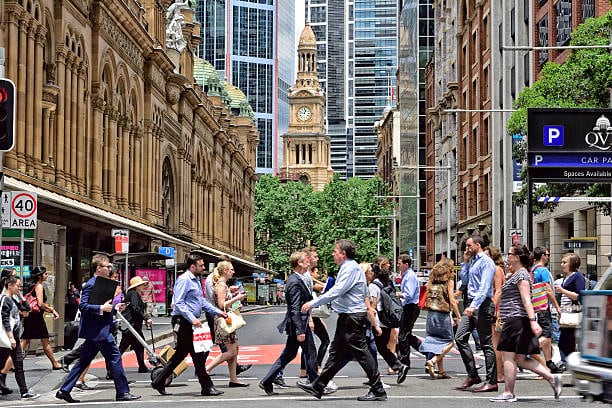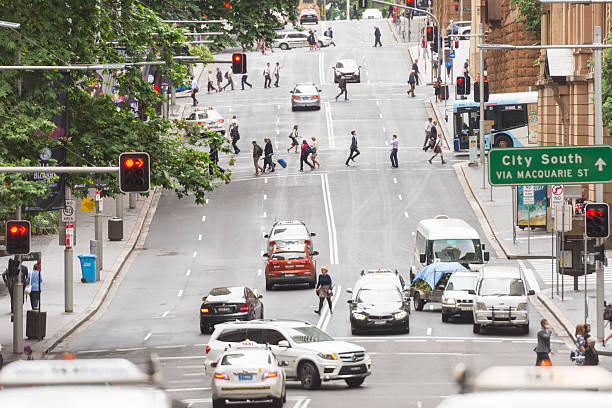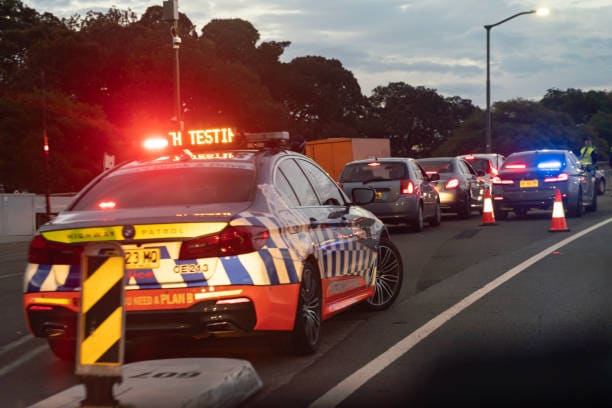Traffic lawyers Sydney CBD are experts in helping you deal with driving offences, traffic offences and other criminal and traffic matters. Traffic law offences in Sydney CBD include:
- Speeding offences
- Running a red light
- Drink driving
- Driving while unlicensed
- Driving while disqualified
- Drug driving
- Dangerous driving occasioning death
- Firearm offences
If you are dealing with such criminal law or traffic law matters, it is necessary to engage the services of traffic lawyers in Sydney CBD. You may be facing licence suspension or disqualification because of repeated offences. This is a serious issue as it hampers your ability to commute, especially if you rely on driving to travel from place to place.
In this article, we focus on some areas of expertise of traffic lawyers Sydney CBD. Our team of Sydney traffic lawyers at JB Solicitors can assist you with such matters and represent clients in local court.
Traffic Lawyers Sydney CBD for Speeding Offences
Speeding is a serious driving and traffic offence in all states of Australia. When you are speeding, you not only put your own life at risk, but you are jeopardising the lives of other travellers and pedestrians on the road.
This is why the law treats this with utmost seriousness. You may be liable to attracting many demerit points or penalties, heavy fines and even licence suspension. In NSW, either a fixed speeding camera, a mobile speeding camera or the Police can catch you speeding.
How can traffic lawyers from Sydney CBD help you with this? We can get you an optimal result and prevent you from receiving disqualification or suspension. Our team can assist you with disputing any allegations against you if you disagree with the allegations against you, or if you were not driving the vehicle at the time of the fine.
Note that depending on the type of speeding offence, and your licence status, you may also face on-the-spot licence suspension.

Traffic Lawyers Sydney CBD for Drink Driving
Drink driving offences occur if the driver handles a vehicle when their blood alcohol level is above the legal limit. Similarly, drug driving offences can also be applicable. Both low range drink driving and high range drink driving offences are serious.
How can experienced traffic lawyers in Sydney CBD help with drink driving offences? If you are facing a drink driving change, our leading traffic law team can:
- Help you avoid a jail sentence (as drink driving is a serious offence)
- Avoid licence disqualification
- Section 10 outcomes (Read more about this below)
Traffic lawyers in Sydney CBD can provide assistance if you’re facing charges related to drink driving. They can help in the following ways:
- Legal Expertise: Traffic lawyers are familiar with the laws, regulations, and legal procedures related to drink driving. They can provide guidance on your rights, potential consequences, and available options.
- Case Evaluation: They can assess the strength of the evidence against you and advise you on the best course of action. They might identify procedural errors or weaknesses in the prosecution’s case that could benefit your defence
- Negotiation: Lawyers can negotiate with prosecutors to potentially reduce charges or penalties. This might involve seeking a plea deal or negotiating for a lesser charge, which could result in a more favourable outcome.
- Court Representation: If your case goes to court, a traffic lawyer can represent you. They’ll present your case, cross-examine witnesses, and argue on your behalf to increase the chances of a positive outcome.
- Mitigation: Lawyers can present mitigating factors to the court, such as your good character, remorse, and any efforts you’ve taken to address the issue. This can potentially lead to a more lenient sentence.
- Navigating Complex Procedures: DUI cases often involve complex legal procedures, paperwork, and deadlines. A lawyer can ensure that all necessary steps are taken correctly and on time.
- Minimising Impact: If you’re found guilty, a lawyer can work to minimise the impact on your life, such as seeking alternative sentencing options like community service or alcohol education programs.
Remember that outcomes can vary based on individual circumstances and the severity of the charges. It’s important to consult with a qualified traffic lawyer who specialises in drink driving cases to understand how they can specifically help you in your situation.
Section 10: Dismissal of Charges
Section 10 of the Crimes (Sentencing Procedure) Act 1999 in NSW allows a court to dismiss charges without recording a conviction if certain conditions are met. It’s typically used for minor offences or cases where the court believes that the offender deserves a chance to avoid a criminal record.
The court may impose conditions such as:
- good behaviour bonds,
- community service, or
- participation in rehabilitation programs.
Conditional Release Orders (CROs)
A conditional release order is a lenient order that the court or magistrate makes. The court generally orders this as an alternative to fines or imprisonment. As part of CROs, the court can put certain conditions in place. For example, the court can impose drug and alcohol abstention, programs, place restrictions or non-association requirements.
Moreover, when courts make Conditional Release Orders, it can also come with certain supervision conditions. Generally, courts can impose CROs for a period of up to two years.

Conviction versus Non-convictions
In NSW, both convictions and non-conviction conditional release orders are legal outcomes that can result from criminal cases such as traffic offences like drink driving.
What is the difference between the two?
- Conviction: A conviction means that you have been found guilty of the offence, and it will be recorded on your criminal record. This can have various negative consequences, including affecting your employment prospects, travel opportunities, and more. If you’re convicted of a traffic offence like drink driving, you may face fines, license suspension, or imprisonment, depending on the severity of the offence.
- Non-Conviction Conditional Release Orders: As we discussed above, in some cases, instead of issuing a conviction, the court might opt for a non-conviction conditional release order. This is a type of sentence where you are released on the condition that you comply with certain requirements.
What Are the Types of Conditional Release Orders?
- Conditional Release Order (CRO): This involves a set of conditions you must adhere to, such as attending counselling, participating in a rehabilitation program, or completing community service. If you fulfil these conditions, you won’t have a conviction recorded.
- Community Correction Order (CCO): This is a more serious type of conditional release order that can include stricter conditions, such as regular reporting to a probation officer. Like a CRO, if you fulfil the conditions, you won’t have a conviction recorded.
Note that even though a non-conviction conditional release order prevents a criminal conviction, it still appears on your criminal record as a non-conviction outcome. However, it generally has less severe implications compared to a full conviction.
The court’s decision to make a conviction or a non-conviction conditional release order can depend on the following factors:
- nature of the offence,
- prior criminal record,
- willingness to comply with conditions, and
- arguments presented by your lawyer.
For these reasons, it is important to consult with a legal professional who specialises in criminal and traffic law. Our traffic lawyers in Sydney CBD can provide you with tailored advice for your matter.
Contact our Australian criminal law group today to speak with our criminal defence lawyer. We also offer fixed fees for some legal services.
